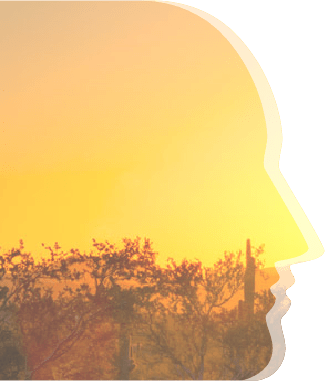Labyrinthitis, sensorineural hearing loss accompanied by vertigo/imbalance, and vestibular neuritis, vertigo/imbalance without hearing loss, are similar but distinct entities. In both diseases, the patient experiences sudden vertigo for several days followed by chronic imbalance that can last for weeks to months. During the acute phase, patients are nauseated, vomit, and may suffer serious falls. They are often seriously debilitated and cannot drive or work. A mild to moderate headache is typically present for days. For patients with labyrinthitis, patients suffer a sensorineural hearing loss of acute onset that may be mild, moderate, severe, or even profound.
Vestibular neuritis is thought to be due to inflammation of the vestibular ganglion (where nerve cell bodies of the vestibular nerve reside) while labyrinthitis affects the entire inner ear. A recent history of upper respiratory infection is common. Both diseases are diagnoses of exclusion in that more sinister causes of such symptoms like strokes or brain tumors must be ruled out. Most patients initially present to the Emergency Department where a head CT scan, laboratory profile, and EKG are performed, which are negative. They are discharged from the ER with vestibular suppressants such as Valium and anti-nausea medications such as Phenergan and asked to make an appointment for ENT follow up.
Why Choose Us
- Dr. Abraham Jacob, Medical Director for Ear & Hearing (E&H) at the Center for Neurosciences (CNS), is fellowship trained in Otology, Neurotology, and Cranial Base Surgery. He is the first and most experienced Neurotologist in Tucson.
- Dr. Jacob was a founding member of the University of Arizona (UA) Department of Otolaryngology prior to his departure and transition to CNS. At UA, he was Vice Chair of ENT and held the rank of full Professor with Tenure. He has an international reputation as an expert for treating ear diseases.
- Dr. Jacob transitioned his practice to the Center for Neurosciences in early 2017 as he felt that the new environment helped him to optimize delivery of personalized ear and lateral skull base care.
- At E&H, the otologic/neurotologic workup for labyrinthitis/vestibular neuritis includes a thorough medical history; comprehensive physical examination including microscope examination of the ears, cranial nerve exam, and vestibular screen; comprehensive audiogram with speech testing; laboratory assessments as needed such as Lyme Disease titers, HIV testing, and Syphilis testing; formal vestibular testing including videonystagmography; and MRI Brain with Internal Auditory Canal Protocol to rule out retrocochlear mass lesions. For patients with labyrinthitis, oral and/or intratympanic steroid treatments may be offered, and for those with hearing loss that does not improve, aural rehabilitation using hearing aids, assistive listening devices, and implantable hearing devices may be recommended. A physical therapy referral for vestibular rehabilitation is often necessary.
Ear & Hearing Appointments
Our Otologist/Neurotologist specializes in the medical and surgical care of patients with disorders of the ear and lateral skull base. Otology/Neurotology and Audiology work together to offer complete hearing health solutions.
To schedule an appointment with our Ear & Hearing department, please call us at (520) 795-7750.
Our Physicians’ Goal
Our physicians’ goal is to provide the highest-quality neurological care– the same level of care we would want for ourselves or our loved ones.
We will help our patients to understand their condition, listen to their concerns, answer their questions, and provide the best clinical treatment available.
